Carter Snead
Fellow
Carter Snead, a Fellow at the Ethics and Public Policy Center, is an internationally recognized expert in the field of law and bioethics. His research explores issues relating to neuroethics, enhancement, human embryo research, assisted reproduction, abortion, and end-of-life decision-making.
Carter Snead, a Fellow at the Ethics and Public Policy Center, is an internationally recognized expert in the field of law and bioethics. His research explores issues relating to neuroethics, enhancement, human embryo research, assisted reproduction, abortion, and end-of-life decision-making.
He is the author of What It Means to be Human: The Case for the Body in Public Bioethics (Harvard University Press, October 2020), which was named by the Wall Street Journal as one of the “Ten Best Books of 2020;” in his review for the same paper, Yuval Levin called it “among the most important works of moral philosophy produced so far in this century.” In May of 2022, it was listed in The New York Times as one of “Ten Books to Understand the Abortion Debate in the United States.” Snead and the book received the 2021 “Expanded Reason Award” (given by Francisco de Vitoria University (Madrid) and the Joseph Ratzinger/Benedict XVI Vatican Foundation), and has been reviewed and discussed in such publications as the Wall Street Journal, The New York Times, New York Post, USA Today, Bloomberg Opinion, Il Foglio, Christian Post, The Review of Metaphysics, American Journal of Jurisprudence, America Magazine, First Things, The New Atlantis, Plough, The Boston Pilot, Public Discourse, Practical Ethics (Oxford University), Legal Ethics Forum, Church Life Journal, Law & Liberty, Angelus News, Mirror of Justice, Crux, Mars Hill Audio Journal, Mercator Net, BioEdge, Front Porch Republic, The National Catholic Register, The American Conservative, Fare Forward, Catholic World Report, The Gospel Coalition, Chronicles: A Magazine of American Culture, The Human Life Review, Eikon, Salvo, The Catholic Thing, The Daily Signal, and National Review.
Additionally, he has written more than 70 journal articles, book chapters, and essays. His scholarly works appear in such publications as the New York University Law Review, the Harvard Law Review Forum, the Vanderbilt Law Review, Constitutional Commentary, Quaderni Costituzionali (Italy’s premier journal of constitutional law), the Yale Journal of Health Policy, Law and Ethics, the Journal of Medicine and Philosophy, and Political Science Quarterly. He is also the editor of two book series for the University of Notre Dame Press – “Catholic Ideas for a Secular World” and “Notre Dame Studies in Bioethics and Medical Ethics.” Snead teaches Law & Bioethics, Health Law, Torts, and Constitutional Criminal Procedure.
In addition to his scholarship and teaching, Snead has provided advice on the legal and public policy dimensions of bioethical questions to officials in all three branches of the U.S. government, and in several intergovernmental fora. Prior to joining the law faculty at Notre Dame, Snead served as general counsel to The President’s Council on Bioethics (Chaired by Dr. Leon R. Kass), where he was the primary drafter of the 2004 report, “Reproduction and Responsibility: The Regulation of New Biotechnologies.” He has testified in the U.S. House of Representatives on regulatory questions concerning RU-486 (the abortion pill). In 2013, he testified in the Texas state legislature on the constitutionality of a proposed fetal pain bill. Snead led the U.S. government delegation to UNESCO and served as its chief negotiator for the Universal Declaration on Bioethics and Human Rights, adopted in October 2005. He served as the U.S. government’s Permanent Observer to the Council of Europe’s Steering Committee on Bioethics, where he assisted in its efforts to elaborate international instruments and standards for the ethical governance of science and medicine. In conjunction with the American Association for the Advancement of Science, he has lectured to state and federal judges on the uses of neuroimaging in the courtroom. He regularly serves as an expert witness on bioethical matters before federal courts.
In 2008, he was appointed by the director-general of UNESCO to a four-year term on the International Bioethics Committee, a 36-member body of independent experts that advises member states on bioethics, law, and public policy. The IBC is the only bioethics commission in the world with a global mandate. In 2016, he was appointed to the Pontifical Academy for Life, the principal bioethics advisory body to Pope Francis. He is also an elected fellow of The Hastings Center, the oldest independent bioethics research institute in the world.
Snead received his J.D., magna cum laude, from Georgetown University, where he was elected to the Order of the Coif, and his bachelor of arts from St. John’s College in Annapolis, Maryland. He clerked for Judge Paul J. Kelly Jr. of the U.S. Court of Appeals for the Tenth Circuit.
Carter Snead, a Fellow at the Ethics and Public Policy Center, is an internationally recognized expert in the field of law and bioethics. His research explores issues relating to neuroethics, enhancement, human embryo research, assisted reproduction, abortion, and end-of-life decision-making.
Understanding Dobbs: The Unbearable Errors of Roe and Casey
Carter Snead
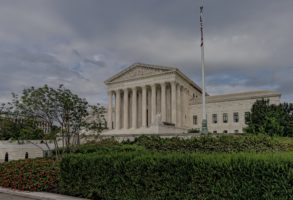
Roe, Casey, and their judicial progeny inflicted a deep wound on this nation, lawlessly encoding a theory of personhood into the Constitution that relegated the unborn to a sub-personal classification.
Articles
Church Life Journal / July 2, 2022
The Pro-Life Movement’s Work is just Beginning
Carter Snead

Abortion is a gruesome symptom of our collective failure to take care of one another.
Articles
The Washington Post / June 29, 2022
Roe Was Very Bad for America. The Court Gives Us a Chance To Reset
Carter Snead
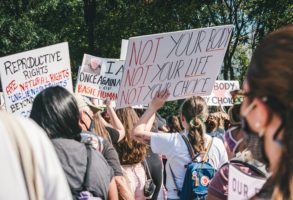
Roe eliminated the need for us to talk to one another in the political sphere in a way that has real and concrete meaning for the laws and policies that bind us.
Articles
CNN / June 28, 2022
Carter Snead’s Statement on Dobbs
Carter Snead
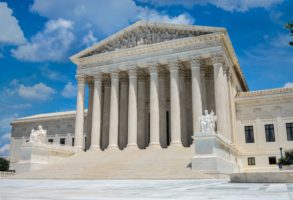
Those who have worked tirelessly to support unborn children and their mothers have reason to rejoice today, as they now redouble the efforts they have long pursued for the intrinsic equal dignity and value of every human life.
Articles
de Nicola Center for Ethics and Culture / June 27, 2022
Dobbs Will Ease Political Polarization
Carter Snead

The American people will be forced to talk to one another, reason together.
Articles
Politico / June 26, 2022
Abortion is Best Governed by Legislatures
Carter Snead
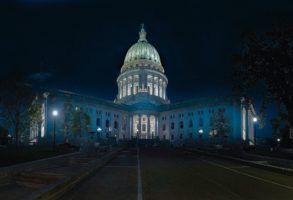
Such a change brings America into line with many other countries.
Articles
The Economist / June 23, 2022
The Leak Shows Why Abortion Policy Should Be Returned to the States
Carter Snead
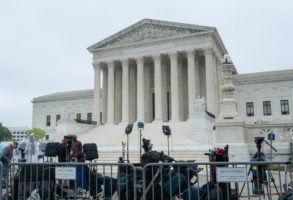
It would be ironic if whoever leaked the draft opinion in Dobbs v. Jackson Women’s Health Organization did it in a desperate effort to prod the Supreme Court to uphold Roe v. Wade and Planned Parenthood v. Casey. Because this breach is one of the starkest examples yet of why the question of abortion law and policy must be restored to our political branches.
Articles
The Washington Post / May 5, 2022
Inhuman Nature
Carter Snead
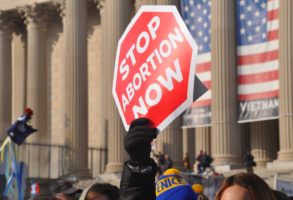
The lawless artifice of American abortion jurisprudence is built on a conception of human identity and flourishing that is false, dangerous, and in no way required by the Constitution.
Articles
National Review - November 29, 2021 issue / November 18, 2021
Greviously and Egregiously Wrong: American Abortion Jurisprudence
Carter Snead
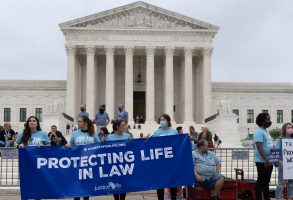
Casey and its precedent case of Roe are egregiously wrong, have no grounding in the Constitution, and are unjustifiable on stare decisis grounds.
Articles
Texas Review of Law and Public Policy / November 11, 2021
The Case for Overturning Roe
Carter Snead
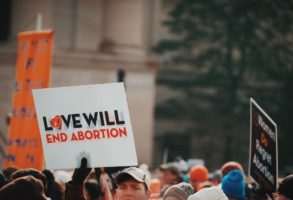
The story of American abortion jurisprudence is a tortured narrative of failed attempts to rationalize the invention of a near-absolute right to abortion that undermines the ability of Americans to govern themselves in some crucial domains of life.
Articles
National Affairs - Fall 2021 issue / October 20, 2021
Critics of Texas’s convoluted abortion law have a point. The solution is to overturn Roe…
Carter Snead
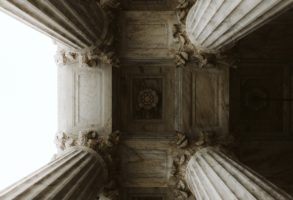
How did we get to this place in our national discourse on abortion where, instead of arguing about how to…
Articles
The Washington Post / September 6, 2021
A Time for Courage on the Supreme Court
Carter Snead
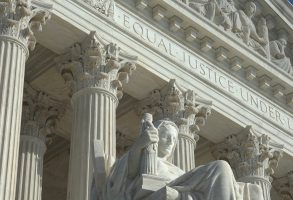
The justices should emulate the courage of their predecessors in Brown v. Board of Education, restore the Court to its proper role as faithful interpreter of the Constitution and begin to repair the vast damage caused by Roe and Casey.
Articles
Newsweek / May 20, 2021